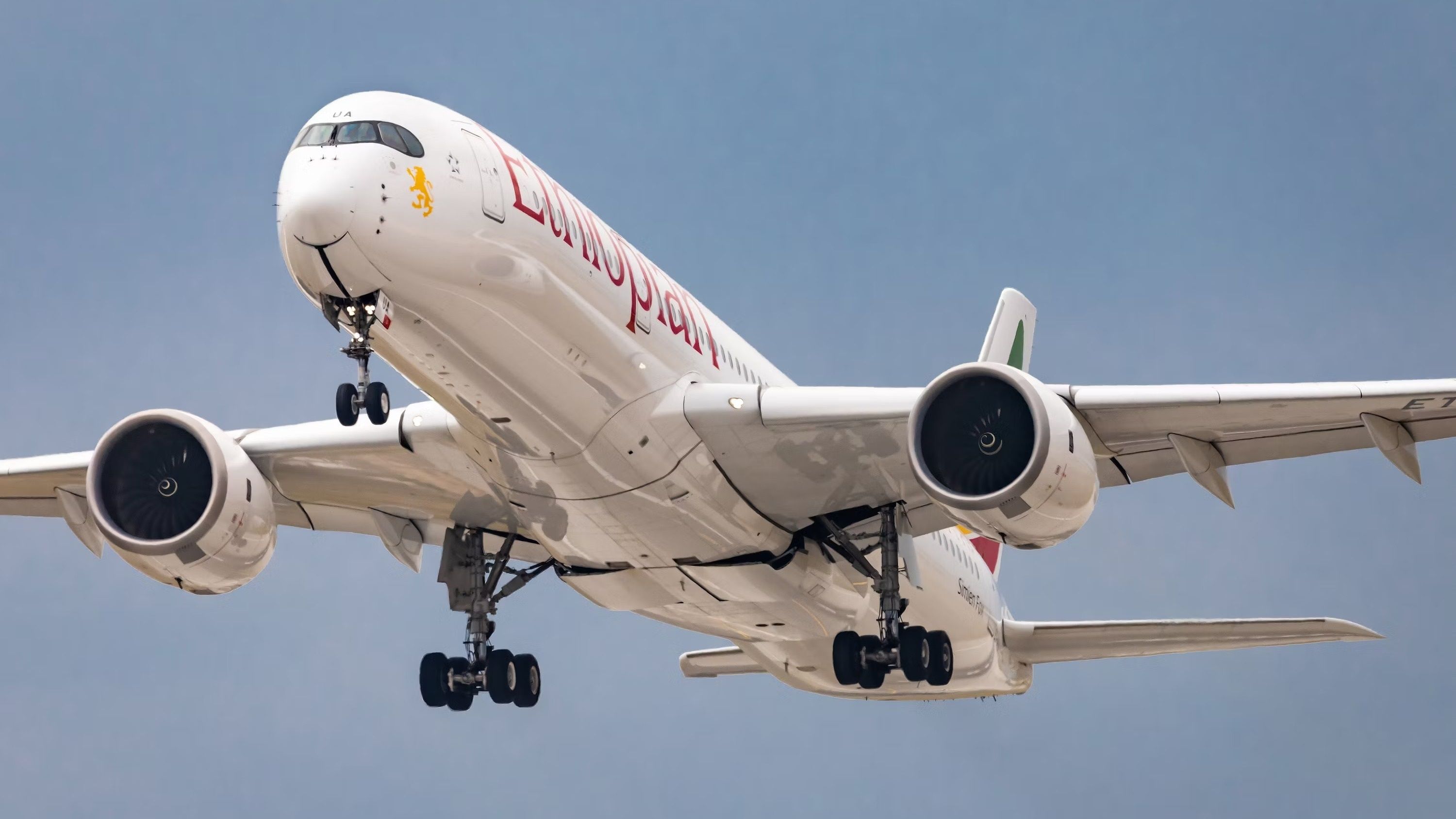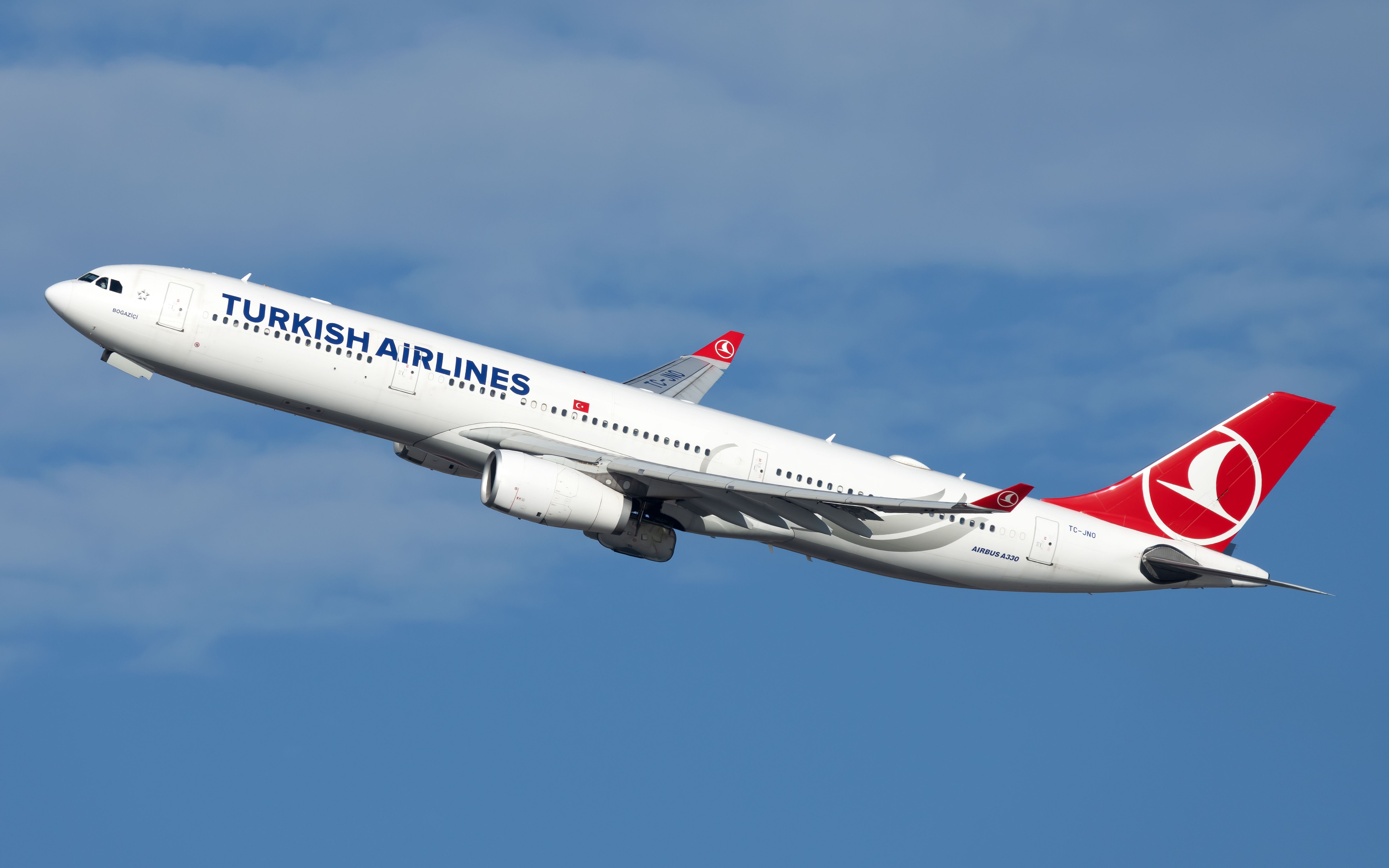SUMMARY
- Widebodies will operate one in every 97 short-haul European flights between June and September.
- Ethiopian Airlines, SWISS, Lufthansa, Turkish Airlines, El Al, and Royal Jordanian have sub-250 nautical mile (463 km) routes.
- Milan to Zurich is the shortest bookable European twin-aisle service.
SIMPLEFLYING VIDEO OF THE DAY
Examining all short-haul European schedules using Cirium data for June to September indicates an average of almost 24,000 daily flights. Inevitably, widebody aircraft, as exciting as they are, will operate a tiny number of them. On a typical summer day, they’ll have 248 flights, with around one in 97 short-haul European services operated by them.
Shortest bookable widebody flights
The following table details them. They are led by a fifth-freedom service operated by Africa’s largest airline, Ethiopian, between Milan and Zurich. The very short route, covering just 110 nautical miles (204 km), began in November 2022 and uses the 348-seat A350-900.
Want tickets for this short service? Get them here!
Like the Star Alliance carrier’s other European routes, Ethiopian keeps its aircraft on the ground in Switzerland all day to maximize Africa-wide connectivity. In June, flights from Milan arrive at 08:00 and depart back to Italy at 21:10.

Photo: Rebius | Shutterstock
Please note the following caveats:
- Only bookable flights are included, which rules out multiple other services, such as between islands in the Canaries or in Greece, which have some widebody flights as part of a wider European routing.
- Routes touching Istanbul Airport, on the European side of the Bosphorus, are included.
- The distance is the Great Circle, with real-world operations likely changing the order.
- As always, things may change, especially from July onwards.
| Nautical miles (km) | Routing | Comments about June-September service only (subject to change) |
|---|---|---|
| 110 (204) | Milan Malpensa-Zurich | Ethiopian five weekly A350-900. Operates Addis Ababa-Milan-Zurich-Milan-Addis Ababa |
| 125 (231) | Zurich-Geneva | SWISS A330-300. August 4, 6, 11, 13, 18, 20, 25, 27 only |
| 162 (300) | Frankfurt-Munich | Lufthansa 787-9. Triple daily on Tuesdays only |
| 183 (339) | Tel Aviv-Larnaca | El Al 787-9 on June 14 only |
| 193 (358) | Istanbul Airport-Izmir | Turkish Airlines double daily 777-300ER |
| 205 (381) | Istanbul Airport-Ankara | Turkish Airlines just twice in these months: A330-200 on June 2 and A330-300 on June 14 |
| 208 (386) | Stockholm Arlanda-Oslo | Ethiopian daily, mainly on the 787-8, but four flights on the 777-200LR and four on the 787-9. Operates Addis Ababa-Stockholm-Oslo-Stockholm-Addis Ababa |
| 223 (413) | Amman-Larnaca | Royal Jordanian 787-8 on June 22 only |
| 230 (425) | Istanbul Airport-Bucharest | Turkish Airlines. Mainly double to triple daily A330-200 and A330-300. The A350-900 is scheduled on June 2, 3, 4, 8, 10, and 26 |
| 247 (457) | Istanbul Airport-Bodrum | Turkish Airlines. Just 13 A330-200/A330-300 flights in these months: four on June 14, two on June 7 and 15, and one on June 17, 23, 24, 30, and July 1 |
Turkish Airlines’ significant changes
Turkish Airlines has a long history of using twin-aisle aircraft within Europe and its home country. This helps to increase aircraft use between long-haul flights and enables many more passengers to be carried, which is particularly important to feed its biggest banks of flights. It also allows much more freight to be transported, which is more important for some markets than others.
Click here to fly on Turkish’s short flights!

Photo: Vincenzo Pace | Simple Flying
While June through September also has many short widebody flights, there have recently been massive changes to twin-aisle use, particularly from Istanbul Airport across Türkiye. Examining Turkish Airlines’ entire domestic plan shows 292 departing widebody flights in these four months (double for both ways). In contrast, there were 990 in the same months in 2023 and a considerable 2,110 in 2019.
The significant drop is because widebodies are now far less often used to Ankara, Antalya, and Bodrum in particular, but the routes are massively well-served by narrowbodies. The change means the twin-aisles can be used more effectively elsewhere.


















